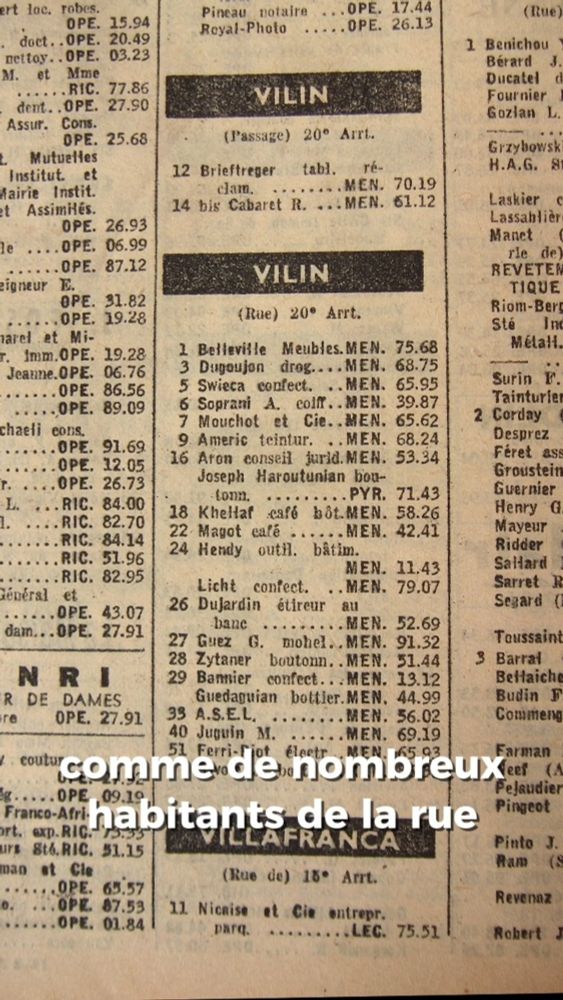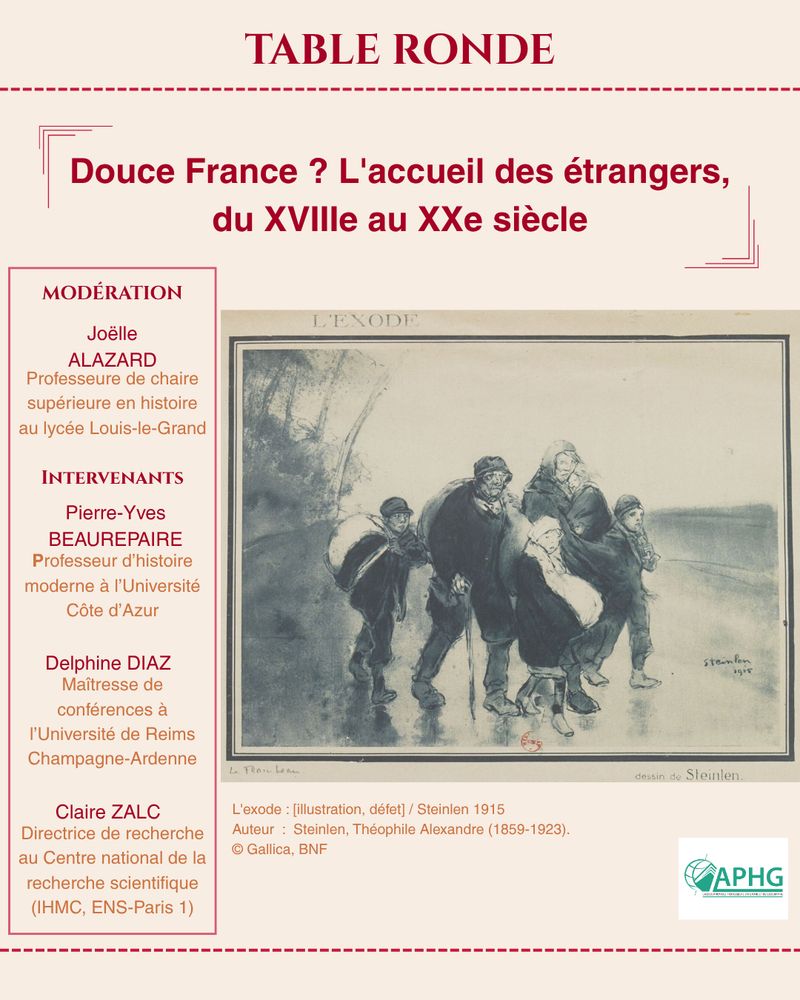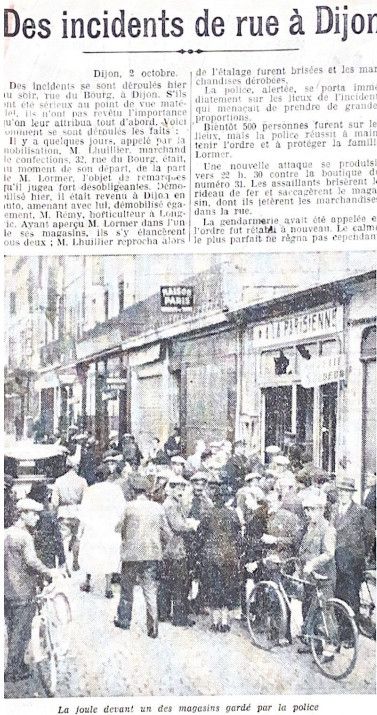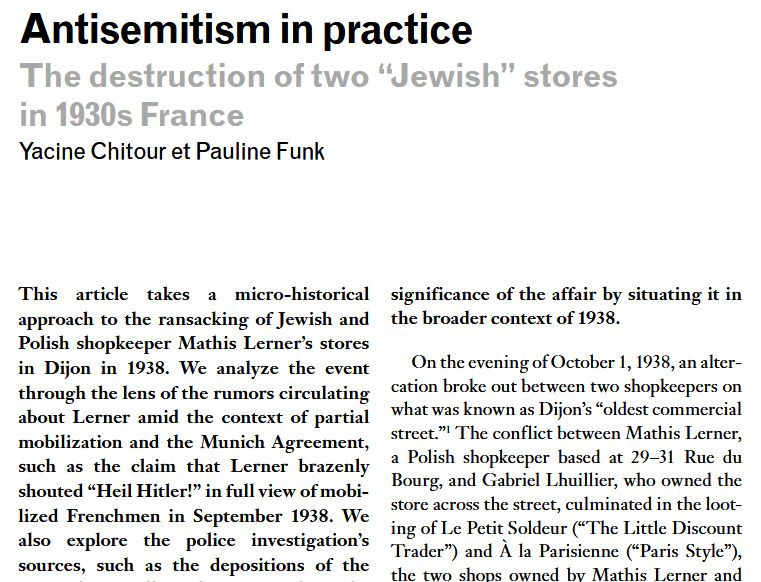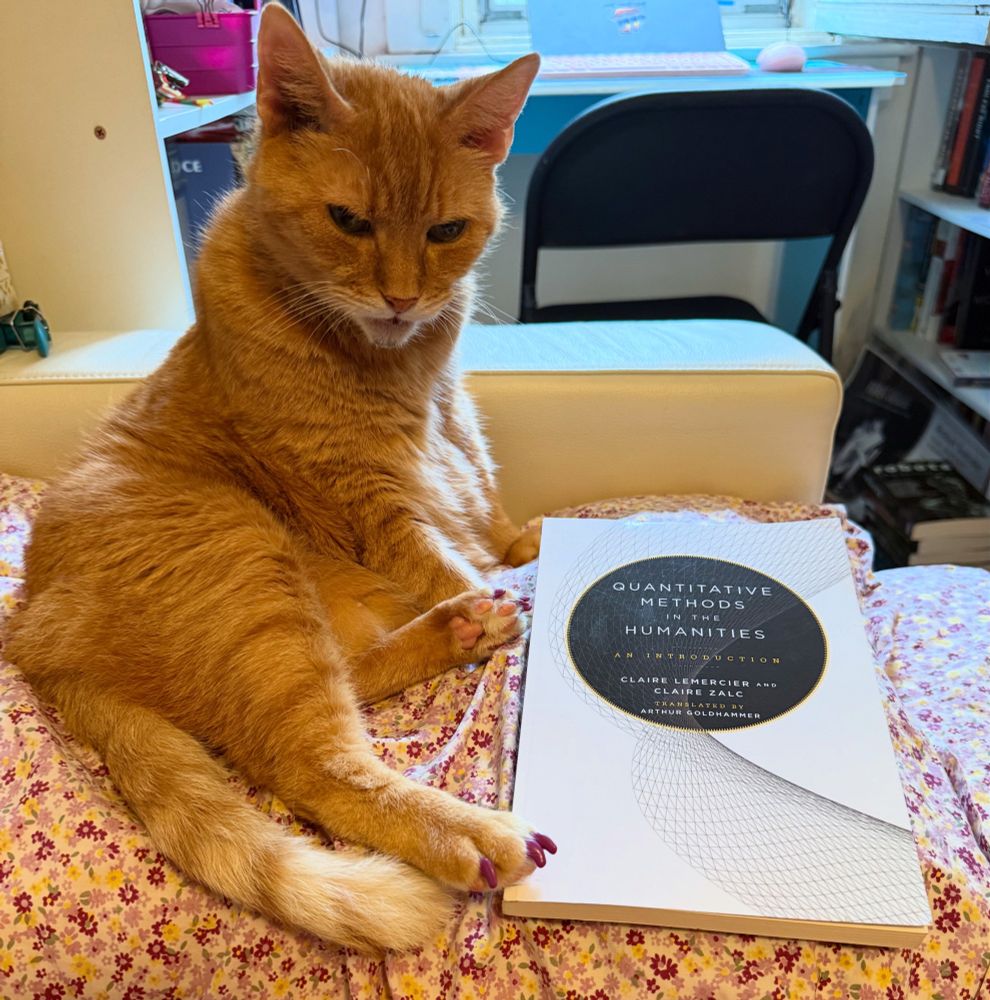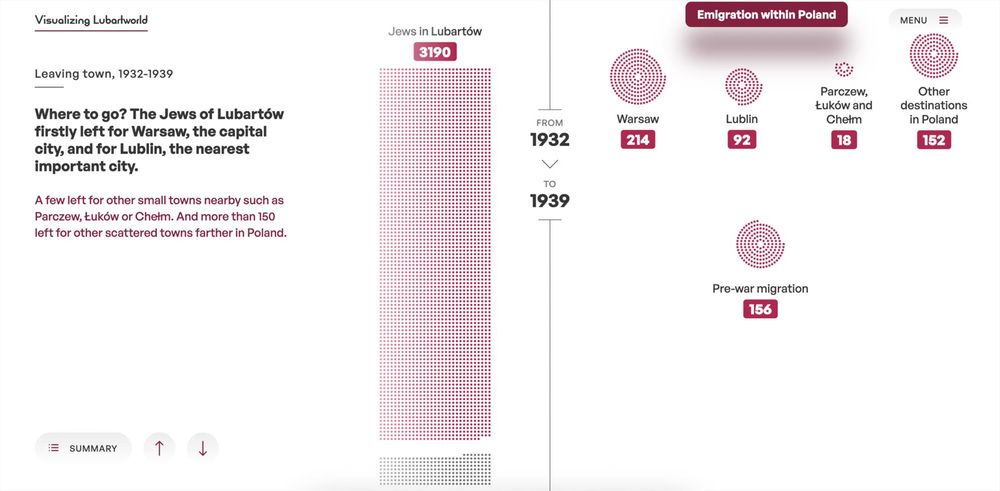
Lubartworld
@lubartworld.bsky.social
320 followers
1.7K following
70 posts
This project proposes to study the relations between migration and Holocaust from the 1920's to the 1950's, from Lubartów to the world.
About the project: https://lubartworld.cnrs.fr/
Posts
Media
Videos
Starter Packs
Pinned
Lubartworld
@lubartworld.bsky.social
· Apr 11
Reposted by Lubartworld
Reposted by Lubartworld
Reposted by Lubartworld
Reposted by Lubartworld
RV lundi 29/9 pour le 4e épisode de la "Fabrique des Annales", podcast trimestriel en partenariat avec @annales.ehess.fr
Au programme, discussion "transimpériale"avec Masha Cerovic, dans les "coulisses" le parcours (du combattant?) d'un article accepté, et revisite d'un papier majeur paru en 2006 !
Au programme, discussion "transimpériale"avec Masha Cerovic, dans les "coulisses" le parcours (du combattant?) d'un article accepté, et revisite d'un papier majeur paru en 2006 !

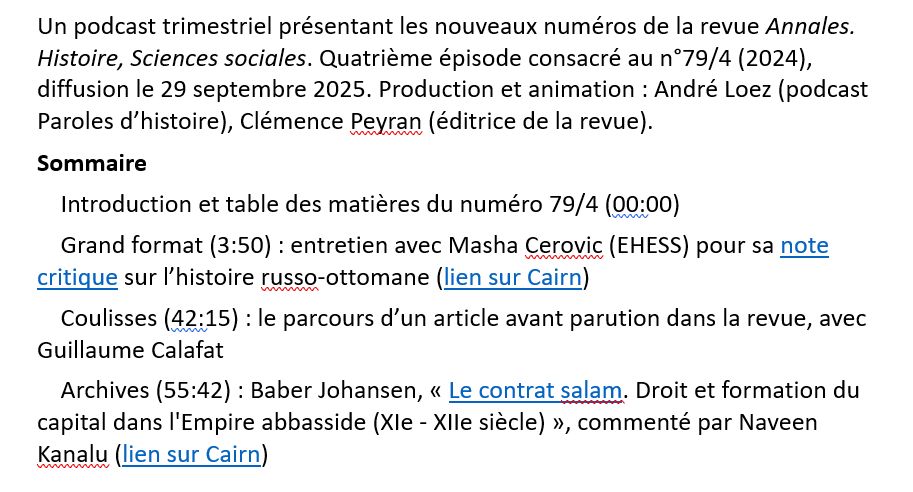
Reposted by Lubartworld
Reposted by Lubartworld
Reposted by Lubartworld
Reposted by Lubartworld
Reposted by Lubartworld
Reposted by Lubartworld
Reposted by Lubartworld
Reposted by Lubartworld
Reposted by Lubartworld
Reposted by Lubartworld
Reposted by Lubartworld
WEDODATA
@wedodata.bsky.social
· Jun 9
Reposted by Lubartworld
WEDODATA
@wedodata.bsky.social
· Jun 9

#dataviz #recherche #scroll #histoire #pologne #shoah | WEDODATA
📚 A WEDODATA, jamais nous n’avions été sollicités pour raconter l’histoire de milliers de personnes sur plus de 100 ans, dont 4 000 personnes juives percutées par la guerre et la Shoah. Comment créer ...
www.linkedin.com
Reposted by Lubartworld
Lubartworld
@lubartworld.bsky.social
· Jun 13
Lubartworld
@lubartworld.bsky.social
· Jun 13




